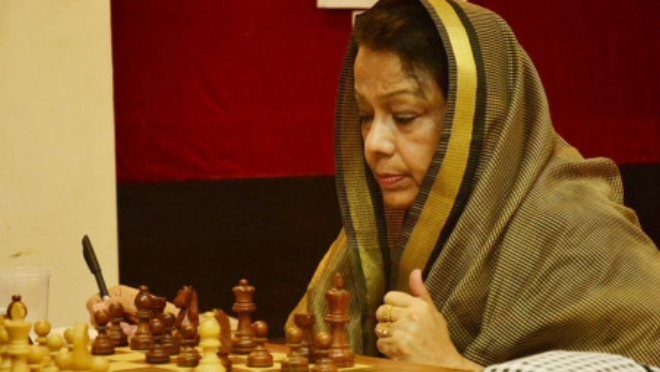Chess player Ashiya Sultana deported from India, fellow Rani Hamid left in dismay
Chess player Ashiya Sultana deported from India, fellow Rani Hamid left in dismay

Veteran Bangladeshi chess player Rani Hamid has expressed her dismay after a fellow player and travel companion was deported from India upon arrival for an international tournament.The 80-year-old, who is competing in the 21st Delhi International Open Grandmasters Chess Tournament in New Delhi, arrived in India earlier this month, accompanied by Ashiya Sultana, 37, also from Bangladesh.
According to a report by The Times of India, Sultana was denied entry at Indira Gandhi International Airport as she had previously taken part in a chess tournament in Kolkata while on a medical visa. Citing this as a violation, India’s Foreigners Regional Registration Office (FRRO) reportedly blacklisted her, leading to her deportation.
Sultana was held overnight at the airport’s immigration facility and was not given access to her luggage. The next day, she was forced to purchase a return ticket to Bangladesh at double the regular fare.
Hamid, visibly shaken, said the experience left her mentally unsettled and unable to concentrate on the ongoing tournament.”I am very sad,” she told Times of India on the sidelines of the Delhi GM Open. “The person who came with me was not allowed to enter India. She was made to sit overnight at the immigration centre. They did not even give her access to her luggage. The next day, she was forced to buy a return ticket at double the price.””My mind is disturbed, and I am unable to focus on the game,” she added.
The incident has taken a toll on her performance. So far, Hamid, who has an international rating above 1800, has managed only one win and one draw from six rounds – all against lower-rated players.Hamid, Bangladesh’s first Woman International Master (WIM), said she never travels alone for tournaments due to her age and always ensures a companion accompanies her.”I never travel alone. I always have someone with me. She was accompanying me, and now she is gone. I have been left alone,” she said.The octogenarian also raised questions about the communication between Indian authorities and Bangladeshi officials regarding such visa restrictions.”Her passport was clear, all documents were in order, but immigration told her she had been blacklisted for playing in a previous tournament on a medical visa,” she said. “At the time, she wasn’t even aware that it was a violation. If she had been informed earlier, she would never have come. The Indian authorities should have notified the Bangladesh Chess Federation.
“She said she even pleaded with immigration officials to consider an alternative measure.”I requested them: if you believe she violated the rules, then impose a fine – $100, $200, whatever – but let her stay and play for seven days. She is not a criminal. She hasn’t committed any crime. She didn’t kill, steal, or rob anyone. Her only offence is that she played chess.
“Despite the ordeal, Hamid expressed gratitude to the Delhi Chess Association (DCA) for their hospitality.
“It is very comfortable here. I can play only because of that comfort. I am very grateful to the organisers who sent tickets and invited us so warmly,” she said, referring to the venue, The Tivoli resort in Chhatarpur, where participants are also accommodated.DCA president Bharat Singh Chauhan described the incident as an unfortunate but not uncommon challenge in hosting international tournaments.
“Visa issues are common for foreign players. In this case, the FRRO had blacklisted her. Perhaps she had previously come to India for medical treatment and ended up playing in a chess tournament, which may have led someone to file a complaint. As a result, she was denied entry,” he said.”These kinds of challenges are part and parcel of hosting large-scale events.”


